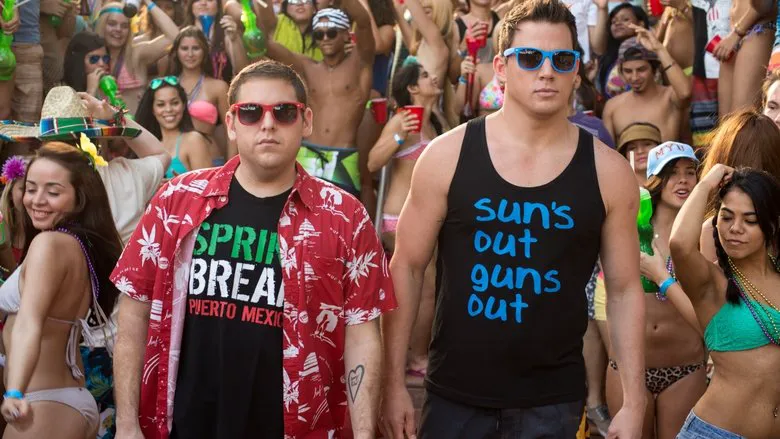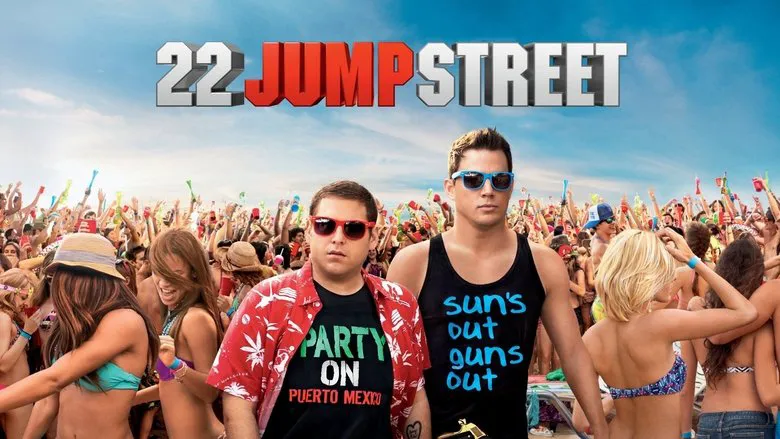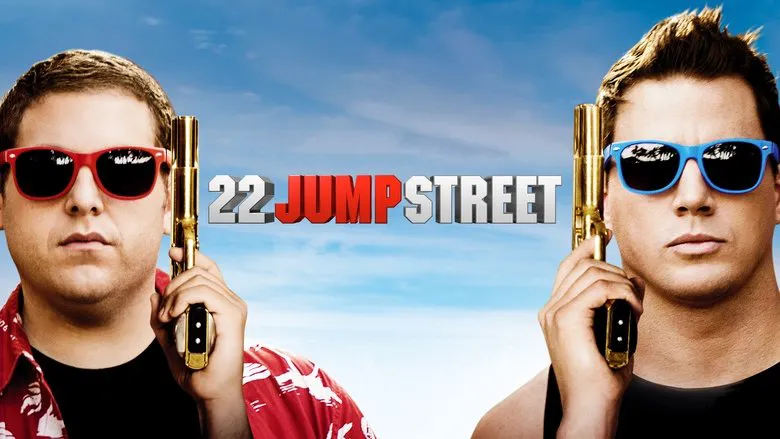22 Jump Street: The Hilarious Art of the Self-Aware Sequel
Since their triumphant undercover operation at the high school, a mission Schmidt (Jonah Hill) and Jenko (Channing Tatum) handled with unexpected brilliance, time has passed. Yet, the dynamic duo of the Jump Street program hasn’t quite managed to replicate that initial success. Their most recent endeavor, a botched attempt to apprehend Ghost (Peter Stormare), a dangerous and elusive smuggler, ended in abject failure, leaving a significant dent in the program’s otherwise gleaming record. To restore public perception and the program’s prestige, their chief has no choice but to send them back into the fray. This time, however, their youthful disguises will lead them to the hallowed halls of academia: they’re going undercover at a college campus to track down the suppliers of a potent new drug known simply as “Wi-Fi.”
The Perilous Landscape of Comedy Sequels
Crafting a sequel that not only meets but potentially surpasses the original is a formidable challenge in filmmaking, particularly when it comes to comedies. While genres like action or horror films often have the luxury of escalating scope, increasing budgets, and overwhelming audiences with scale and spectacle, the same formula rarely applies to humor. The quality of a gag, a punchline, or a genuinely funny situational comedy is not directly proportional to the amount of money poured into the writers’ room. If a comedy sequel’s foundation—its script—falters, it can quickly tumble into obscurity, dragging along disinterested actors and a dejected director, resulting in a lukewarm and forgettable viewing experience.

Embracing the Inevitable: A Stroke of Genius
The creators of “22 Jump Street” demonstrated a profound understanding of these inherent difficulties. Their seemingly audacious solution? If the core situation (being a sequel) cannot be fundamentally altered, then the attitude towards it absolutely can be. Rather than attempting to conjure a completely new story or invent groundbreaking scenarios, the filmmakers opted for an incredibly self-aware approach. They playfully leaned into the film’s inherent “secondary” nature, constantly mocking it by periodically revisiting and reimagining situations from the first film, often cleverly swapping the characters’ roles or the contexts in which these familiar scenarios unfold. This meta-commentary provides a fresh layer of comedic depth.

A Risky Gambit That Pays Off Handsomely
Frankly, this path—a fully conscious “repetition of what has passed”—is a dangerous one, offering no guarantees of success (as evidenced by its failure to aid films like “Scream 4”). Yet, in “22 Jump Street”, this unconventional strategy works brilliantly. Perhaps its triumph lies in the sheer density of its jokes, a relentless comedic onslaught that employs everything from brilliant quotes and clever wordplay to surprising “star” cameos. The humor flows from the creative team in an unending stream. And the term “authors” here extends beyond just the screenwriters; a substantial portion of the film’s comedic brilliance is born from the actors’ spontaneous improvisations.
Take, for instance, the memorable “drug trip” scene featuring the main characters: it’s almost impossible to resist laughter, not solely because the episode is cleverly written, but precisely because of the utterly carefree and hilariously uninhibited way Channing Tatum dances under an arch of cartoon rainbows. Similarly, the raucous fight scene between Jonah Hill and Jillian Bell towards the film’s finale—where the latter repeatedly tries to steer the physical altercation into something more intimate—is hysterically funny due to the sheer fervor with which Hill fends off the advances of his excessively passionate (and persistent) female opponent.

A Relentless Barrage of Belly Laughs
Periodically, a distinct, almost hysterical note breaks through the film. It’s as though the creators, realizing they no longer possess the trump cards of freshness and originality, decided to compensate by overwhelming the audience with pure, unfiltered comedic pressure. This is not a comedy that laboriously squeezes out refined, “British” witticisms through clenched teeth. Instead, “22 Jump Street” barrels forth, designed to knock you off your feet, relentlessly tickling you until you’re gasping for air and begging for mercy. It may not be the most sophisticated or inventively structured comedy, but was it funny? Absolutely. And with laughs this robust and plentiful, frankly, no complaints will be entertained
The longevity of this particular comedic trick, however, seems finite. It’s highly doubtful it could be successfully deployed for a third time, especially considering the film’s riotously meta-final sequence. During the credits, “22 Jump Street” joyfully and deliciously mocks every conceivable sequel scenario, effectively closing the loop on its self-aware narrative and perhaps signifying an end to this particular format. But truly, what does the future hold when the ‘here and now’ is this good? For the moment, we are unequivocally dealing with one of the most triumphantly successful and genuinely hilarious comedy sequels of its year.